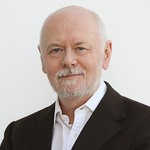Blog
From the Editor's Desk (March 2015)
I’m writing this editorial from Dar es Salaam, while at the 20th anniversary workshop for Tanzania’s REPOA, one of our research partners. UNU-WIDER has been active in the African development debate throughout its 30 years, and our engagement has deepened even more over the last five years. Finn Tarp, UNU-WIDER’s director, has long experience in the region, especially in Mozambique, as does senior research fellow Channing Arndt. Ghana is always in our hearts, and research fellow Wisdom Akpalu operates out of Accra. In Helsinki, research fellow Amadou Boly from Burkina Faso is now joined by Nadia Ouedraogo (also from Burkina Faso) and we have two Burkinabé PhD interns as well.
Our Africa work does not take place in isolation from our engagement in other parts of the world. UNU-WIDER strongly believes in helping transfer knowledge across regions. One example is our recently completed research project with Cornell University on how countries deal with food price shocks —led by Per Pinstrup-Andersen. Last month saw UNU-WIDER in New Delhi for the launch of the book resulting from this project, and Roger Williamson has a report-back in this Angle. You can also see more discussion via this month’s RESEARCHAngle.
The words ‘inclusive’ and ‘growth’ are often now put together—at least in the minds of most policy makers—but how is this actually to be achieved? Job creation is one obvious channel, but creating good, well-paying jobs at scale is easier said than done—also the case in the developed world. In this month’s Angle our new colleague Tulio Cravo writes on job creation and the business cycle in Brazil. Tulio recently joined UNU-WIDER from Brazil and will be working on Mozambique.
In our new series ARCHIVEAngle we feature Bill Lazonick’s work on American capitalism, how it works, and the lessons for developing countries. Bill is a professor at the University of Massachusetts Lowell. A growing body of research has analyzed the symbiosis between the developmental state and high-tech entrepreneurship, and the US is a premier example of this. Bill wrote a very prescient paper on this topic (just before the 2008-09) financial crisis, which you can find here.
With Greece and its debt problems in the news (and debt again attracting attention in Africa, notably in Ghana), its time to revisit what we know about debt workouts. José Antonio Ocampo from Columbia University is an expert in the area, especially the Latin American experiences. RESEARCHAngle features a report on this work.
Our publications continue to steam ahead. Together with Finn Tarp I recently edited a special issue of the journal World Development on aid policy and the macroeconomic management of aid. The issue is open access and you can find it here. There is much more from our work on foreign aid and its impact in our ReCom programme. We have published 40 or so working papers this year, with many more to come. Topics include: state capability in Africa; poverty in Ghana; food insecurity; trade liberalization in India; health shocks; and social capital in Vietnam (just to give a few examples). Inequality is always a strong theme of UNU-WIDER’s work as well and you should take a look at the World Income Inequality Database (WIID), the best database of its kind.
VIDEOAngle has featured many interviews with people associated with the Institute. This month we have Jim Davies from the University of Western Ontario. Jim had a key role in UNU-WIDER’s research into global wealth, resulting in the edited volume Personal Wealth from a Global Perspective, published in the UNU-WIDER series with Oxford University Press in 2008. Jim attended last year’s Inequality conference in Helsinki, and we took the opportunity to interview him for his thoughts on the topic of wealth inequality and his UNU-WIDER project.
The last months have found UNU-WIDER busy sending out Calls for Papers on topics ranging from social protection to clean energy to discrimination and affirmative action. Managing natural resource wealth is one of the latest. You can find them here.
One way to get regular updates on all our publications and opportunities is to follow UNU-WIDER on twitter @UNUWIDER. UNU-WIDER director Finn Tarp is at @FinnsAngle. So sign up, and join us in the global development conversation. We are back in April with the next issue of Angle.
 Join the network
Join the network

